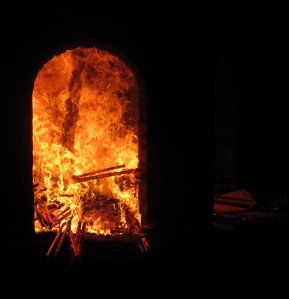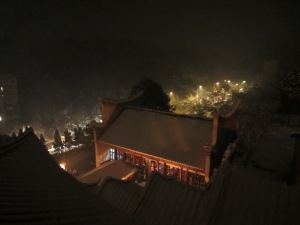Well it’s certainly been a while since I’ve updated this—in my defense, spending my 9-6 in front of computer writing grant proposals is a significant disincentive to writing at a computer in my spare time. In any case, I’ve spent the year and a half since returning to Beijing in the same apartment in Dongcheng, and in that time have fielded a rotation of roommates. The shortest-lived of these paid two months rent and didn’t spend a single night in the apartment.
This summer, after Cousin Katie moved out, I posted another ad on the Peking University bulletin board (bbs) for a new roommate. One girl who responded had gotten the ad from her boyfriend, an impending Beida graduate. Having met in high school and endured a long-distance romance throughout college, they found themselves triumphantly reunited as she prepared to move to Beijing for work. Amanda (my potential roommate’s chosen English pseudonym) visited the apartment and, after just a quick glance around, announced that it suited her. “I just moved to Beijing and I’m staying with my boyfriend for a few days while I get settled, but then I’ll move in here,” she said as she handed me two month’s rent.
After three weeks went by without any sign of her moving in, I called her to see what the deal was. Rather sheepishly, she explained that, in fact, after living in separate cities for the past few years she and her boyfriend had grown quite accustomed to living together and maybe she would just stay with him after all. This left me in a rather frustrating position—my next installment of rent was due to the landlord the following week, and I had been counting on Amanda to pay a third of that rent. She was understanding, though, and as the change of plans had been short notice she agreed to pay another month’s rent while I looked for a replacement. We settled the logistics of a rendezvous to hand-off the rent, at the end of which she said:
“Great, and when I come by to hand you the rent can you give me the spare set of keys to the apartment?”
“What? Why do you need the keys if you’re not moving in after all?”
“Right, but as long as I’m paying another month’s rent I’d like to store some things in the apartment for the next month.”
“What?”
“Right, I am staying with my boyfriend but actually I’d like to stay over at the apartment one day next month, just on October 8th.”
“…What?”
This was definitely one of the weirder phone conversations I’ve had. It took some wheedling, but finally I managed to get the back story out of her. Amanda’s parents were coming to visit her in Beijing for October Holiday. And she couldn’t simply receive them at the apartment where she was secretly living together with boyfriend, now could she? So my apartment had been drafted to serve as her alibi, which she would take her parents to in order to convince them that she was living alone and not in sin.
I’d certainly heard before of Chinese friends having to hide their romantic endeavors from conservative parents, but this was the first time that I’d actually been complicit in one. My other roommate was skeptical, but we worked out an arrangement where Amanda came by a week before, dropped off a couple sets of clothes and borrowed an apartment key. She didn’t even end up staying over, just taking her parents to see it one morning while I and my other roommate were at work. The bedroom must have looked pretty sparse, but as far as I know they were convinced.
























